The Annual Status of Education Report (ASER) 2023 ‘Beyond Basics’ survey was held in 28 districts across 26 states, reaching a total of 34,745 youths in the age group 14-18 years.
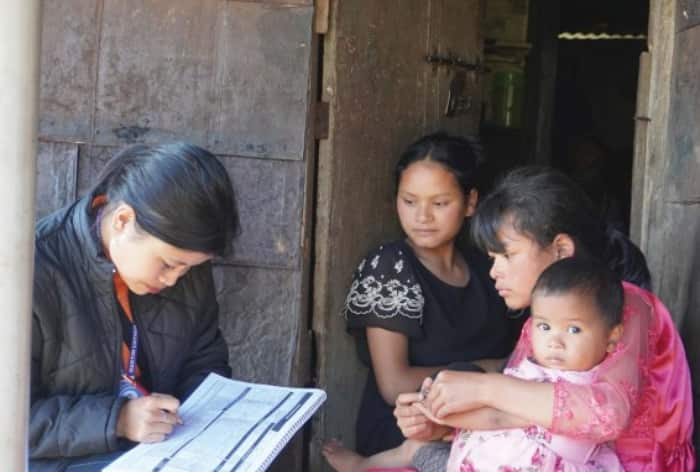
ASER 2023 Report: Facilitated by Pratham Education Foundation since 2005, the Annual Status of Education Report (ASER) is a large-scale citizen-led household survey that aims to understand whether children in rural India are enrolled in school and whether they are learning. Earlier on Wednesday, the Annual Status of Education Report (ASER) 2023 was released. As per the ASER Report, forty-two per cent of children in the age group of 14 to 18 years in rural India cannot read easy sentences in English, while more than half of them struggle with simple division problems. The Annual Status of Education Report (ASER) 2023 ‘Beyond Basics’ survey was held in 28 districts across 26 states, reaching a total of 34,745 youths in the age group 14-18 years. One rural district was surveyed in each major state, with the exception of Uttar Pradesh and Madhya Pradesh, where two rural districts were surveyed.
What does ASER 2023 ‘Beyond Basics’ cover?
- Given this context, ASER 2023 ‘Beyond Basics’ explores four key domains:
- Activity: What activities are India’s youth currently engaged in? Are they in school, college, taking tuition, vocational training, preparing for an exam, working?
- Ability: Can they read simple text and do basic arithmetic? Can they do simple computations that are necessary in daily life (like calculating interest for repayment and discounts)? Can they read and understand simple instructions (such as instructions on a medicine packet)?
- Awareness and digital aptitude: Do they have access to smartphones? Are they financially aware? Are they aware of digital technologies and platforms? What do they use smartphones for? Are they able to perform basic digital tasks on a smartphone?
- Aspirations: What do they aspire to become? How much further do they want to study? Who are their role models?
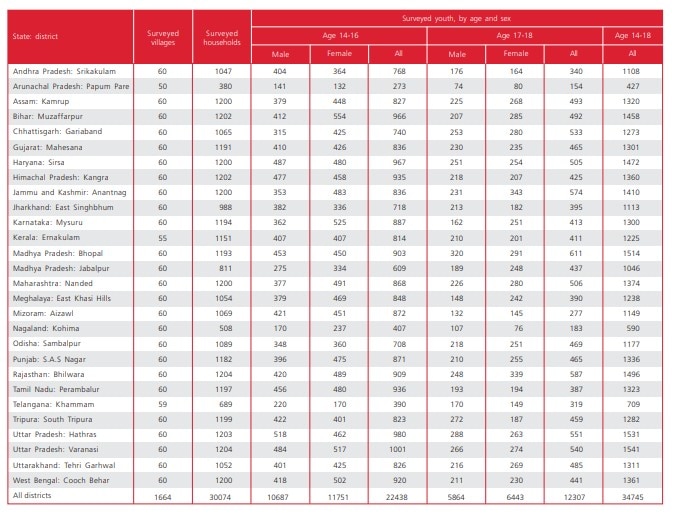
25 % of this AGE Group Cannot read a Std II level text fluently in their regional language: ASER Report
“About 25% of this age group still cannot read a Std II level text fluently in their regional language. More than half struggle with division (3-digit by 1-digit) problems. Only 43.3% of 14-18-year-olds are able to do such problems correctly. This skill is usually expected in Std III/IV,” reads the ASER report. “A little over half can read sentences in English (57.3%). Of those who can read sentences in English, almost three quarters can tell their meanings (73.5%). Across enrollment categories, females (76%) do better than males (70.9%) in reading a Std II level text in their regional language. In contrast, males do better than their female counterparts in arithmetic and English reading,” reads the report further.
Reasons for discontinuing education, by sex (%). Age group 17-18 years
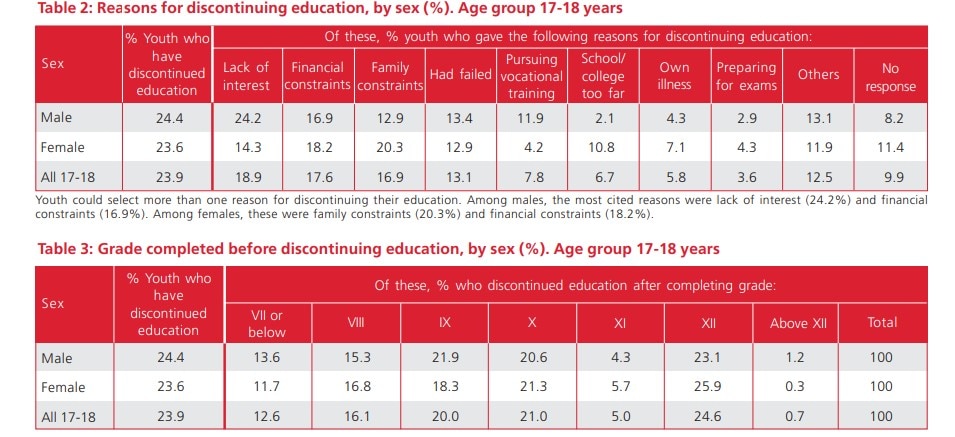
Do young people aspire to study further?
As per the ASER 2023 survey data shows that most young people in the 14-18 age group are firmly within the education net: the majority are currently enrolled (Table 47), and over 60% aspire to continue studying to the undergraduate level or higher (Table 48), including among those who are not enrolled in any educational institution (Table 49).
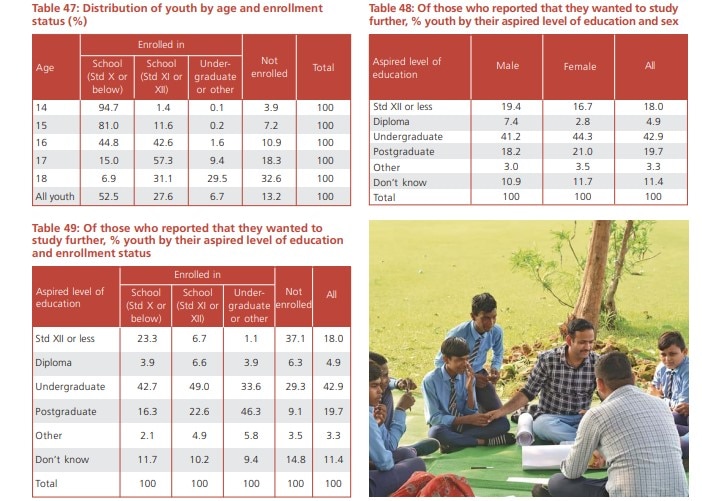
What are young people’s work aspirations?
As part of the ASER survey, young people were asked whether they aspired to do any specific type of work in the future. Table 50 summarises their responses. Data from the survey shows that for the most part, young people’s work aspirations are highly gendered. “The two most popular choices among the boys and young men in the sample were army (13.8%) and police (13.6%), with all other work categories falling far behind. Among the girls and young women surveyed, teacher (16%) and doctor (14.8%) were the most common choices, with police (12.5%) emerging as the third most popular choice,” reads the ASER report.
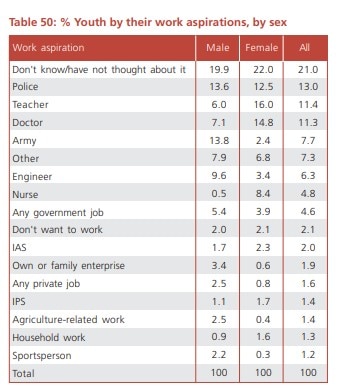
ASER reports are also used by the government while formulating policies. First implemented in 2005, the ‘basic’ ASER survey was conducted annually until 2014 and switched to an alternate-year cycle in 2016. The ‘basic’ ASER collects information about enrollment in preschool and school for children in the age group of three to 16, and assesses children aged between five to 16 one-on-one to understand their foundational reading and arithmetic abilities.
More than 86.8 per cent youngsters in the age group of 14-18 years in the country are enrolled in educational institutions and more than half of them opt for the humanities stream, according to the Annual Status of Education Report (ASER). In Std XI or higher, more than half are enrolled in the Arts/Humanities stream (55.7%), followed by STEM (31.7%) and Commerce (9.4%). Females are less likely to be enrolled in the STEM stream (28.1%) than males (36.3%). Only 5.6% of surveyed youth report taking vocational training or other related courses currently.
“Trends on basic learning have remained relatively unchanged over the last decade. Although the National Achievement Survey (NAS) and ASER use different metrics and methods for assessing learning, both point to the fact that basic learning levels of elementary school children need significant improvement. “NEP 2020 also clearly states the urgent need for ensuring that by Std III, children have acquired basic reading and arithmetic skills,” the report said.
ASER Report: Digital access and use of among youth age 14-18, by district
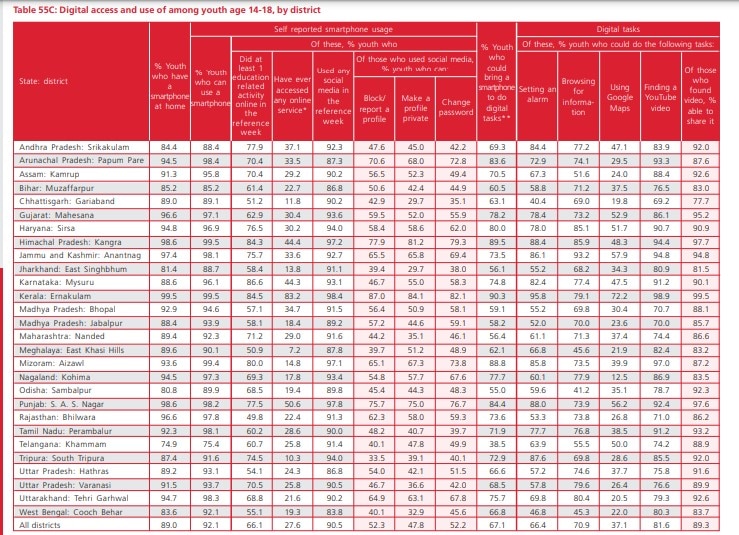
ASER Report: Activity of youth age 14-18, by district
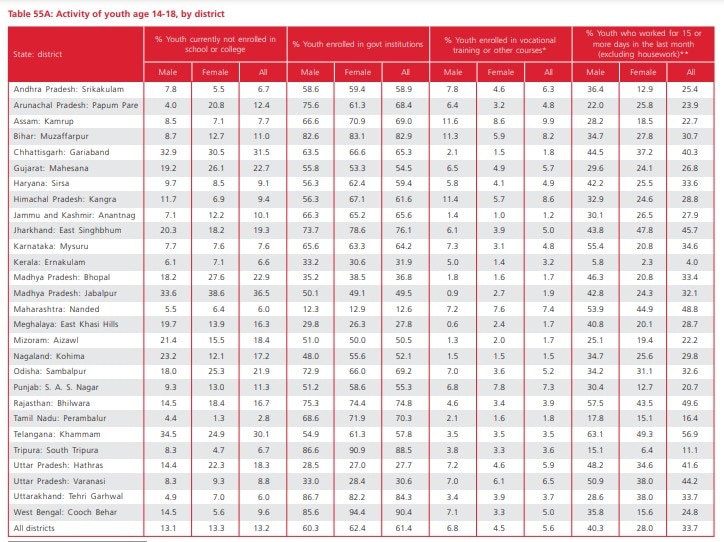
For more details, candidates are advised to track the official website of https://asercentre.org/aser-2023-beyond-basics/.

